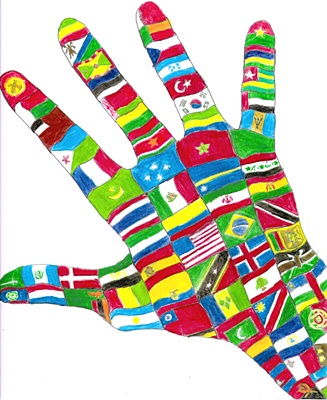All Nonfiction
- Bullying
- Books
- Academic
- Author Interviews
- Celebrity interviews
- College Articles
- College Essays
- Educator of the Year
- Heroes
- Interviews
- Memoir
- Personal Experience
- Sports
- Travel & Culture
All Opinions
- Bullying
- Current Events / Politics
- Discrimination
- Drugs / Alcohol / Smoking
- Entertainment / Celebrities
- Environment
- Love / Relationships
- Movies / Music / TV
- Pop Culture / Trends
- School / College
- Social Issues / Civics
- Spirituality / Religion
- Sports / Hobbies
All Hot Topics
- Bullying
- Community Service
- Environment
- Health
- Letters to the Editor
- Pride & Prejudice
- What Matters
- Back
Summer Guide
- Program Links
- Program Reviews
- Back
College Guide
- College Links
- College Reviews
- College Essays
- College Articles
- Back
Human Rights Junkie
I am a self-described human rights junkie who gets overwhelmingly attached to the plight of oppressed peoples all over the world now and throughout history. One story out of many however continues to affect me profoundly, the story of the kids of the Night of the Pencils or La Noche de los Lápices.
The year was 1976 and the place Argentina. In March, amid political upheaval, a military junta took over the government and began to impose its reign of terror on the entire country, arresting and subsequently ‘disappearing’ people they deemed as threats to their rule. No one was immune from the junta’s base brutality, not even a group of high school kids whose only crime was protesting high bus fares. The children, ages sixteen to eighteen, were kidnapped from their homes in the middle of the night and detained in inhumane conditions typical of the junta’s treatment of prisoners. This event became infamously known as ‘La Noche de los Lápices,’ because those captured were all secondary school students, and it has since spawned a book and a movie of the same name, inspired by the testimonies of the three children who survived. Six are still missing to this day, four boys and two girls.
The story of the Night of the Pencils has affected me in a deeply visceral and passionate way for one simple reason: as a politically and socially conscious young people around the age of the arrested teens, I heavily identify with their spirit of struggle and desire for change. To see their hope, their lives and their voices suppressed in such a brutal and horrifying way makes my mouth go dry with shock and my eyes well up with tears of despair and disgust. I remember when I watched the 1986 Argentinean film of the same name for the first time and asked myself, what possesses people to commit such atrocities? And for what overall purpose? My commitment and passion for any and all human rights issues was cemented that day. Essentially, I became even more committed to human rights after viewing that film and many others like it that concern similarly horrendous systematic abuses of power by military dictatorships in Latin America in the 1970s, a region of the world that I find absolutely fascinating.
Inspired by this story and numerous others like it, I wish to devote my life to working for social justice and human rights in Latin America and all over the world. An important part of working for justice is making sure people do not forget about such horrible occurrences. I intend to make sure people do not forget through my preferred medium of fiction writing. Sometimes people are more willing to hear truth if it is couched in fiction. I write not only as a means of expressing my own thoughts and feelings in an eloquent and purposeful way but also because I wish to inform and enlighten people about the issues of Latin America, in particular the Southern Cone region and this turbulent and heartbreaking era in its history. Currently, I am working on a novel about a well-to-do girl living in Santiago during the mid-to-late 1980s who discovers the horrifying truth about the dictatorship of Augusto Pinochet and about her own true origins. I have also written numerous short stories and pieces centering on the rise and fall of Salvador Allende and the Popular Unity and its impact on all parts of Chilean society.
The word for ‘story’ in Spanish is ‘historia,’ or history. I hope my stories allow people to learn both about the history behind them and to remember the past. If people do not remember the past, as the old adage goes, then they are doomed to repeat it.

Similar Articles
JOIN THE DISCUSSION
This article has 0 comments.
